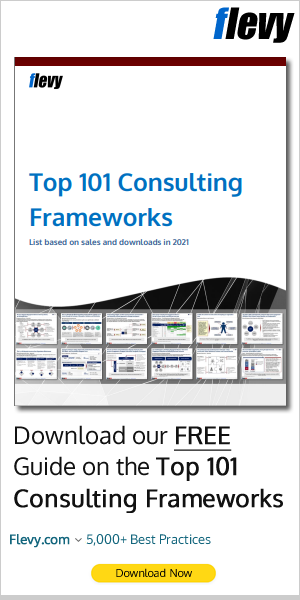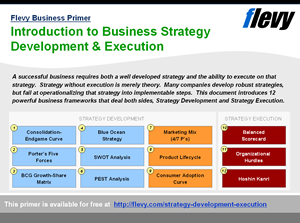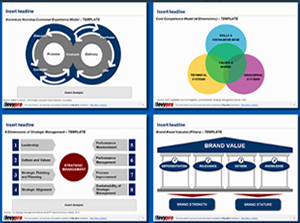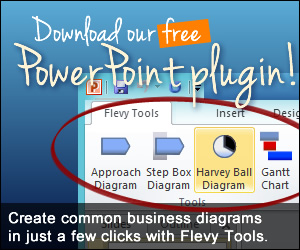Editor's Note: Take a look at our featured best practice, Fiaccabrino Selection Process (44-slide PowerPoint presentation). The Fiaccabrino Selection Process is a powerful methodology for interviewing and screening the best people for your organization. The objective is to select those people who will be the highest performers with the lowest turnover. (Whereas the methodology was originally developed for a sales [read more]
Optimizing Employee Selection: Insights into Effective Assessment Strategies
Also, if you are interested in becoming an expert on Human Resource Management (HRM), take a look at Flevy's Human Resource Management (HRM) Frameworks offering here. This is a curated collection of best practice frameworks based on the thought leadership of leading consulting firms, academics, and recognized subject matter experts. By learning and applying these concepts, you can you stay ahead of the curve. Full details here.
* * * *

Understanding the Types of Employment Assessments
Selecting the right talent is an art as much as it is a science. To embark on this journey, organizations must understand the key factors influencing employee selection. It’s not just about skills and qualifications; it’s about identifying individuals whose values align with the company culture and who possess growth potential.
Employment tests and assessments serve as beacons, guiding organizations through the fog of uncertainty that often surrounds hiring decisions. Their role is pivotal as they provide objective and standardized measures to evaluate candidates’ skills, abilities, and suitability, ensuring informed hiring decisions and contributing to creating a qualified and effective workforce.

The cornerstone of employee selection, interviews have been the go-to method for decades. More than a mere exchange of questions and answers, interviews are dynamic encounters where candidates showcase their skills, interpersonal finesse, cultural alignment, and potential contributions to the team. The interactive nature of interviews unveils aspects that may not be evident in written assessments, providing a holistic perspective on a candidate’s suitability for a role. Beyond the technical competencies listed on a resume, interviews illuminate the intangibles – the passion, adaptability, and collaborative spirit that can define success in a given work environment.
Skill Tests
These assessments serve as a litmus test for a candidate’s competence, allowing employers to gauge their capacity to perform specific tasks essential to the role. This not only ensures alignment with the job requirements but also aids in predicting on-the-job success.
Cognitive Ability Tests: Diving into a candidate’s problem-solving skills and critical thinking, these assessments probe the candidate’s capacity to analyze complex scenarios. For instance, a timed problem-solving test may be administered to assess analytical skills, providing a glimpse into how candidates approach and resolve challenges.
Some popular kinds of cognitive ability tests used for pre-employment include the Wonderlic Personnel Test, widely employed for general cognitive assessment, and the Watson-Glaser Critical Thinking Appraisal, specifically designed to evaluate potential candidates’ analytical and critical thinking skills.
Skills and Knowledge Assessments: These are tailored evaluations focusing on a candidate’s proficiency in specific job-related areas. In the tech industry, a common example is a coding test. For a software developer position, this test becomes a litmus test for the candidate’s programming skills, ensuring they possess the technical acumen necessary for success in the role.
Aptitude Tests
Aptitude tests are instrumental in revealing an individual’s innate capabilities and potential to learn in specific areas. Unlike assessments focused on acquired knowledge, these tests hone in on inherent talents, providing employers with valuable insights into a candidate’s adaptability and suitability for roles that demand particular skills.

Numerical Reasoning Tests: Assess a candidate’s ability to understand and work with numerical information, gauging mathematical problem-solving skills crucial for roles involving data analysis or finance.
Verbal Reasoning Tests: Evaluate a candidate’s proficiency in understanding and interpreting written information. It is essential for positions requiring effective communication and comprehension.
Abstract Reasoning Tests: Examine a candidate’s ability to recognize patterns, relationships, and trends in non-verbal information, providing insights into analytical and problem-solving skills applicable across various roles.
 Behavioral Assessments
Behavioral Assessments
Behavioral assessments are designed to provide a thorough picture of a candidate’s workstyle, interpersonal skills, and behavioral tendencies. By analyzing the responses to situational scenarios or probing into their personality traits, they offer employers insights into how candidates might approach challenges, collaborate with others, and contribute to the organizational culture.
Personality Assessments: One popular type of behavioral assessment is Personality Assessment, exemplified by tools like the Myers-Briggs Type Indicator (MBTI). Personality assessments look into an individual’s preferences, providing a framework to understand their unique traits and tendencies.
Situational Judgment Tests: Simulating real-world scenarios, these tests assess a candidate’s ability to navigate complex situations. By presenting hypothetical work situations, employers can gauge decision-making skills and how candidates approach challenges.
Emotional Intelligence Assessments: These assessments measure an individual’s ability to understand and manage emotions. Evaluating how well a candidate recognizes and responds to emotional cues can be crucial for roles that require effective collaboration and leadership.
Reference Checks
While not a test per se, reference checks are a vital part of the assessment process. Contacting previous employers to verify a candidate’s work history and performance provides valuable insights into a candidate’s past contributions and reliability.
Designing Effective Pre-Employment Assessments

If crafting tailored pre-employment assessments feels like navigating a maze without a map, consider the Harver Assessment as your guiding light.
Offering a diverse array of assessments, the Harver Assessment is like a toolkit for companies seeking the perfect match between candidates and roles. Its comprehensive approach taps into different facets of a candidate’s abilities. Covering a spectrum of Hard Skills like multitasking, typing, and language proficiency, it ensures candidates have the technical prowess needed for the job. But Harver goes beyond the surface. Its Behavioral Assessments dive into cultural fit, employing a Personality Questionnaire and a Virtual Interview to understand how candidates align with the company ethos. The magic continues with assessments targeting Cognitive & Learning Agility, evaluating what candidates know and how quickly they can adapt and learn. Harver also delves into Job Fit with a Situational Judgment Test and Assignments, ensuring candidates have the skills and can apply them in real-world scenarios.
For those eager to crack the code, getting Harver Assessment insights and practice is key. That’s where companies like Assessment-Training come in. Offering tailored packages for Harver assessment preparation, they provide applicants with the tools to shine in every facet of this multi-dimensional evaluation.
Organizational Necessity: Strategic Employee Selection
Optimizing employee selection is not just a necessity; it’s a strategic imperative. Pre-employment tests and assessments are the compass guiding organizations through the complex terrain of hiring decisions. By understanding the nuances of various assessment methods and embracing design principles that prioritize fairness and customization, organizations can unlock the full potential of their workforce. As we traverse the ever-evolving workplace landscape, staying attuned to developing trends will be the key to building teams equipped for the challenges of tomorrow.

Want to Achieve Excellence in Human Resource Management (HRM)?
Gain the knowledge and develop the expertise to become an expert in Human Resource Management (HRM). Our frameworks are based on the thought leadership of leading consulting firms, academics, and recognized subject matter experts. Click here for full details.
The purpose of Human Resources (HR) is to ensure our organization achieves success through our people. Without the right people in place—at all levels of the organization—we will never be able to execute our Strategy effectively.
This begs the question: Does your organization view HR as a support function or a strategic one? Research shows leading organizations leverage HR as a strategic function, one that both supports and drives the organization's Strategy. In fact, having strong HRM capabilities is a source of Competitive Advantage.
This has never been more true than right now in the Digital Age, as organizations must compete for specialized talent to drive forward their Digital Transformation Strategies. Beyond just hiring and selection, HR also plays the critical role in retaining talent—by keeping people engaged, motivated, and happy.
Learn about our Human Resource Management (HRM) Best Practice Frameworks here.
Readers of This Article Are Interested in These Resources

|
|
8-page Word document
|
|
20-slide PowerPoint presentation
| |||
About Shane Avron
Shane Avron is a freelance writer, specializing in business, general management, enterprise software, and digital technologies. In addition to Flevy, Shane's articles have appeared in Huffington Post, Forbes Magazine, among other business journals.
Top 10 Recommended Documents on Hiring
» View more resources Hiring here.
» View the Top 100 Best Practices on Flevy.


 Behavioral Assessments
Behavioral Assessments










